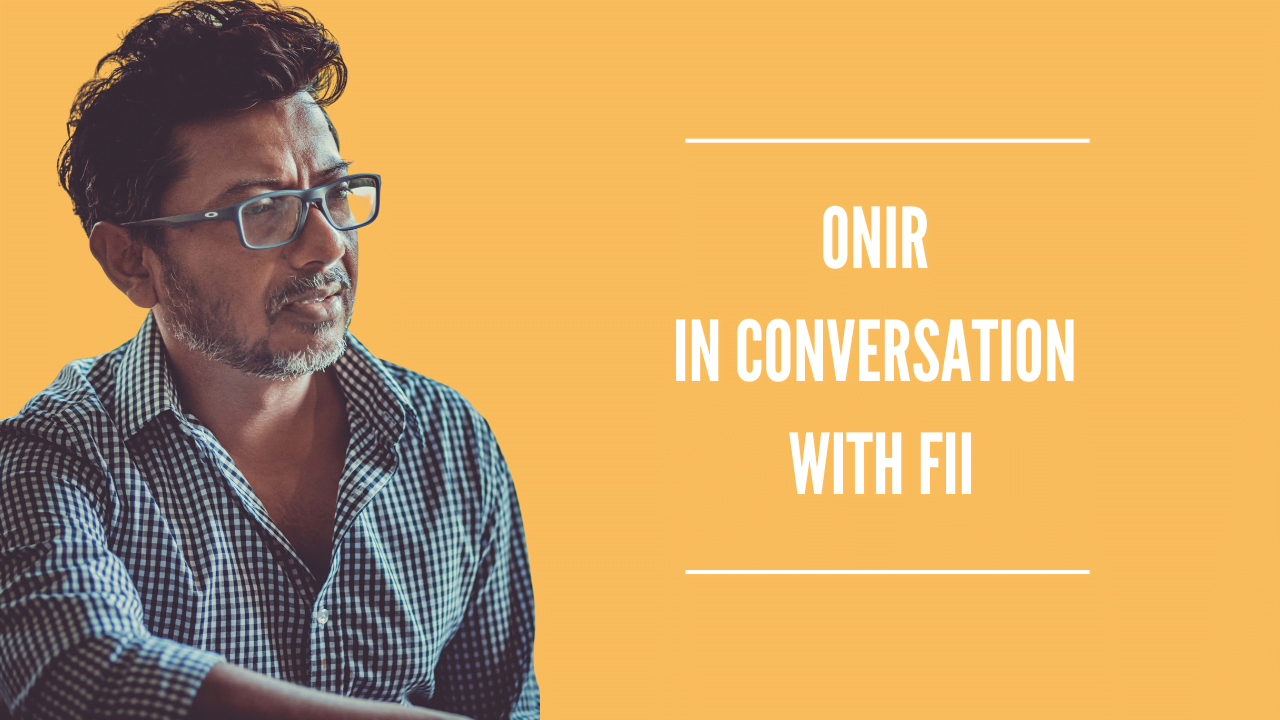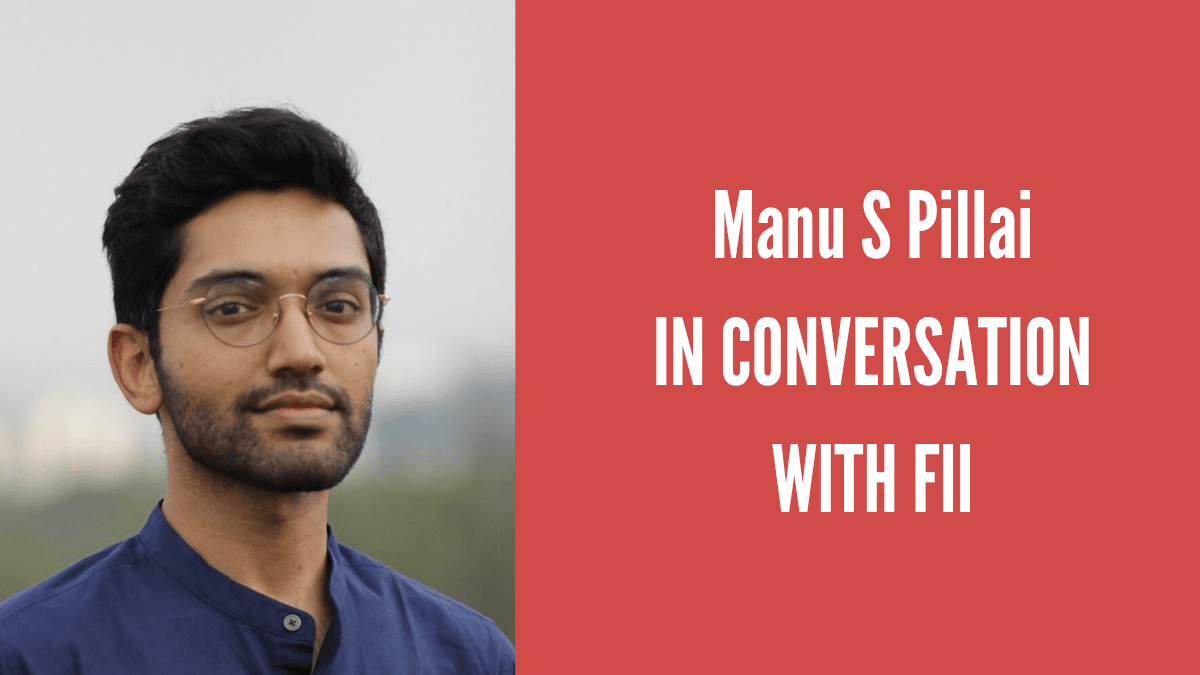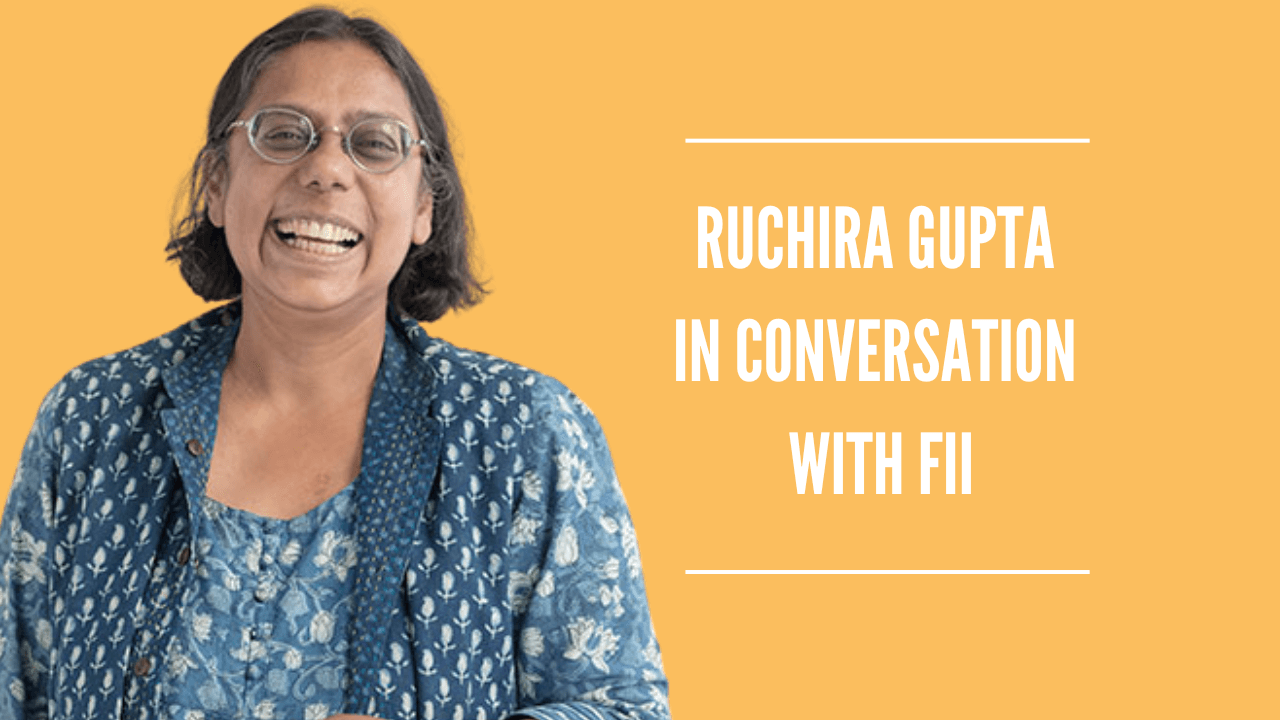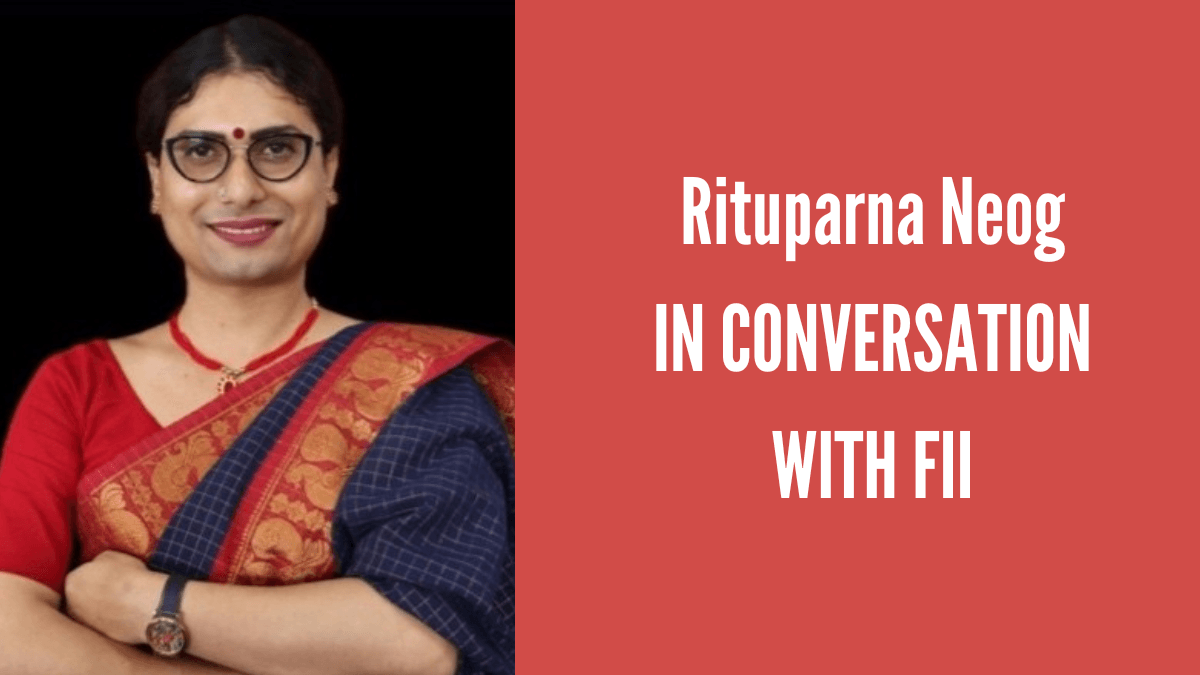Onir is an award-winning filmmaker. He won National Award for his film I Am, a beautiful saga of four short stories about self-realisation. He has won 16 awards for his films in total. His films deal with real-life stories and attempt to represent the issues related to minorities — such as same-sex relations, AIDS, Etc. He is an openly gay director and his identity as a queer person is often reflected in his works.
In the interview, Onir talks about the motivations for his work and his personal struggle as an openly identified queer director. The discussion also touches on broader ideas such as minority politics and LGBTQIA+ representation.
FII: What is your main motivation when creating a film? What is it that you try to achieve through that?
Onir: I think most of the films are inspired by real-life stories, so basically, stories that are about life, or that inspire me — move me, disturb me, or make me smile. It could be anything! Stories that trigger different kinds of emotions. There is no one homogenous kind of film or reaction that it has. Each film has its own trigger points with the audience. Some films are meant for social change, and some are meant for just telling a good story to make you smile.
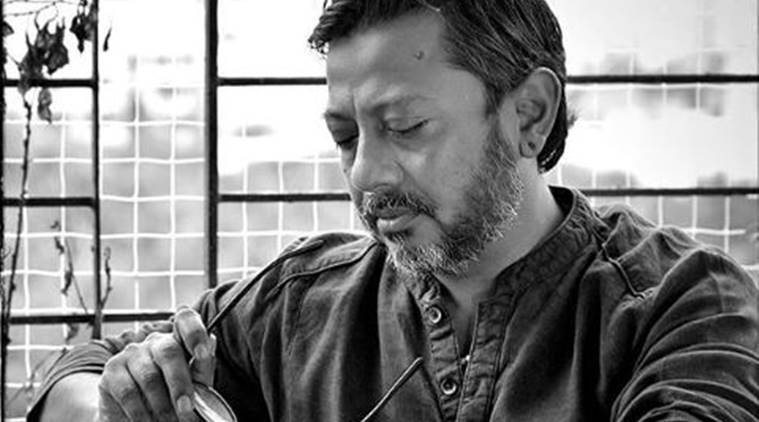
For me, it is important that be it a comedy, a romance, a thriller, or a social drama, they contain elements which are progressive — be it in the way women are portrayed, or the portrayal of other minority communities, such as the portrayal of religion, sexuality, and gender. So, irrespective of the story and genre, the characters that represent the story should be people who convey progressive, inclusive ideas to enable a kinder world.
FII: Your work, especially I Am, deals with different social issues including same-sex relations, single motherhood, child abuse Etc. What common theme binds all these issues together for you?
Onir: I Am is a film that right from the title makes it obvious that it is a film of claiming one’s identity. An identity which rises above one’s sexuality, and one’s past which could have involved child sexual abuse, or survival. It is about asserting one’s identity and coming to terms with one’s history. It could be about the identity of a displaced person or of a person living in a space that is in conflict.
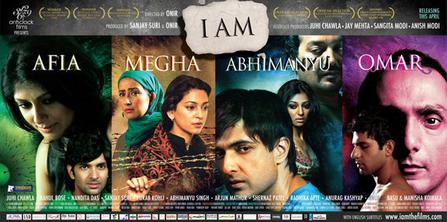
Or, when I talk about motherhood, it is the identity of a woman in a patriarchal society as motherhood also gets defined by patriarchy. Then, the woman redefines the notion of motherhood for herself.
FII: Your first film, My Brother…Nikhil, deals with a real-life incident. What are some real-life issues in the present regime that need immediate representation?
Onir: There is no shortage of such stories. What is problematic is what the audience embraces. Right now, unfortunately, the stories which deal with inclusion, diversity, love, and kindness are not as celebrated as the stories of hate or the stories which depict a community in a stereotypical manner to encourage more hate.
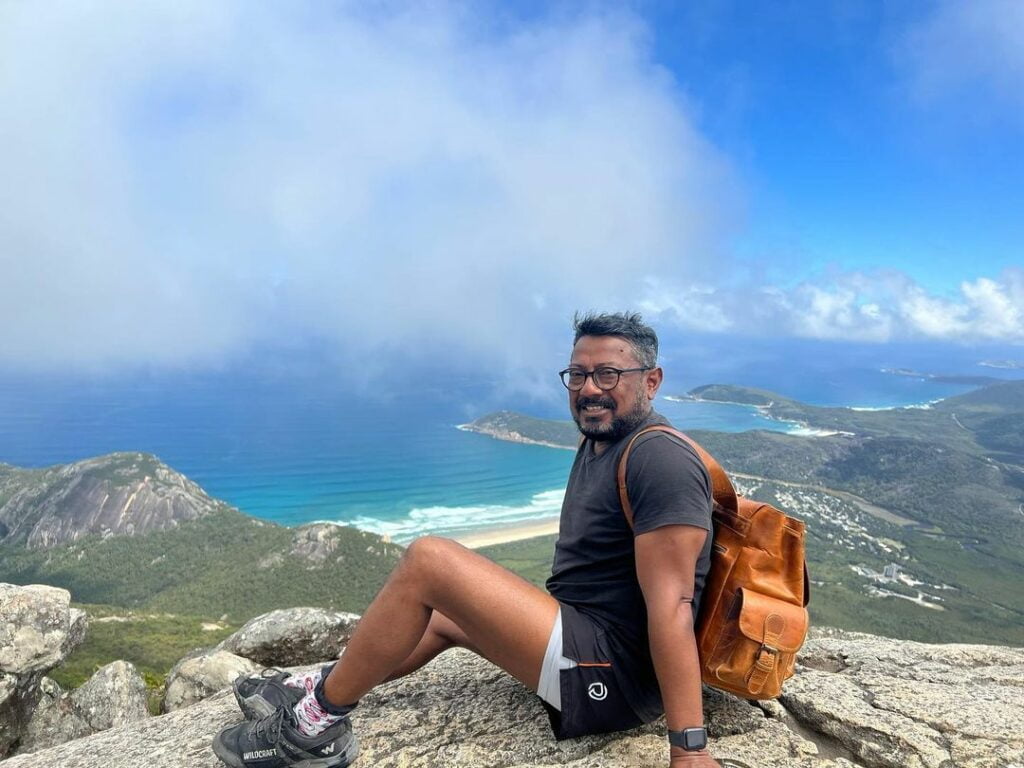
It was really sad to notice the two films released yesterday: The Kerala Story and Afwaah. While Afwaah is a film that tries to question and talk against the narrative of hate. But there is hardly any audience for that. While in a film like The Kerala Story which starts with a lie, people are willing to forget that lie and still watch the film which adds more fuel to their hate. So, people want to celebrate and nurture hate. It’s trying times for art because the films that try to question this are suddenly not finding an audience. The State makes a film like The Kerala Story tax-free. It just shows that times are extremely disturbing.
Right now, unfortunately, the stories which deal with inclusion, diversity, love, and kindness are not as celebrated as the stories of hate or the stories which depict a community in a stereotypical manner to encourage more hate.
Onir
Personally, I’m not picking issues, I’m picking up stories. My agenda in life is not to address a template of 50 issues that are important right now. I simply tell the stories I feel empowered to tell, and many of them are right now dealing with LGBTQIA+ rights. Within that space, I also talk of other minority struggles. There are always challenges there because, for instance, if you are a Muslim from the queer community, your challenges are more.
Film like The Kerala Story which starts with a lie, people are willing to forget that lie and still watch the film which adds more fuel to their hate. So, people want to celebrate and nurture hate. It’s trying times for art because the films that try to question this are suddenly not finding an audience.
Onir
There is discrimination and oppression within minorities of other minorities. It is important to question why one is trying to be a voice for a minority while oppressing another minority because they do not fall within their schema of what is right and wrong. At the end of the day, whoever is in the majority is oppressing another set of minorities. This is what the world has become which I try to look at in my films.
FII: What do you think of the recent representations of the LGBTQ community in the mainstream media (for instance, Ek Ladki Ko Dekha Toh Aisa Laga, Chandigarh Kare Aashiqui, Shubh Mangal Zyada Saavdhan, Badhaai Do Etc.)? Is it a progressive step or are they still replete with stereotypes and inappropriate depictions?
Onir: There is a handful of us who are out and proud gay working in the film industry. We are noticing this whole trend of cisgender men and women trying to suddenly appropriate our stories. It becomes a “tick–mark” for actors that they have done one gay role as if there is one homogenous gay population. They will do hundreds of straight characters which are distinct characters, but gay is supposed to be singular without different stories and shades.
Most of these films are about the straight world learning to accept us and how we should almost be thankful for it. But, for me, our lives are much more beyond their acceptance as that is their shortcoming. This gaze needs to shift to understand that we as a gay community are much more evolved as human beings as we are born accepting the other. While the other is still trying to accept something which is very basic and human.
Onir
Similarly, a lot of filmmakers who want to do our stories are in the mainstream, so the platforms, the studios, and everyone enable them to appropriate our stories. Suddenly, they start claiming to be the flagbearers of our struggle, whereas, they have never lived our experiences nor participated in our struggles to get equal rights. There is nothing at stake for them; but, when it comes to profiting from our stories, they are the first ones to line up.
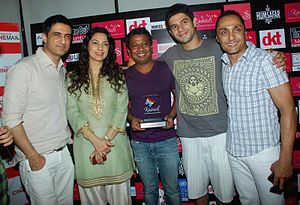
I’m happy there are more films with a queer narrative. However, most of them are from a heteronormative gaze. Just like it’s important to empower the women behind the camera to tell the stories the way they look at them, similarly, the way we look at the stories is very different from what the cisgender people look at.
Most of these films are about the straight world learning to accept us and how we should almost be thankful for it. But, for me, our lives are much more beyond their acceptance as that is their shortcoming. This gaze needs to shift to understand that we as a gay community are much more evolved as human beings as we are born accepting the other. While the other is still trying to accept something which is very basic and human.
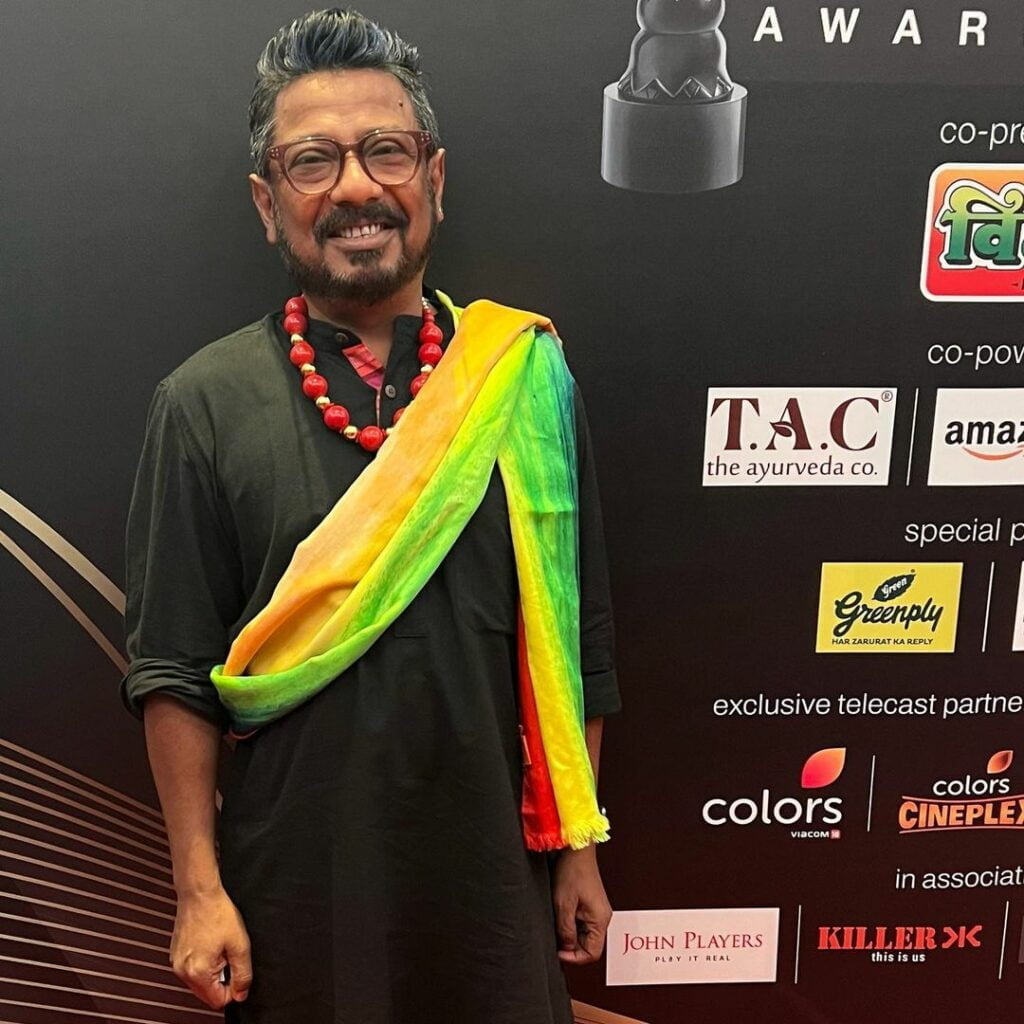
Why are equality and humanity needed to be taught? Why do they need sensitizing workshops? Yet, these are the people who are telling our stories which is problematic. Representation is hardly there which will not change overnight. But, even if we are not on people’s radar, we are constantly taking steps to be empowered — to be equal to anyone else in a democratic country.
FII: As you said that you are one of the few openly gay directors in Bollywood. Did you face struggles while making your career as a filmmaker due to your honesty about your identity?
Onir: Yes. For the longest time, I would say no, this is a very inclusive industry. This is partly true. But a part of this comes from the fact that people would often rather have your sexuality invisible. For instance, at parties, people would be talking about their girlfriends and boyfriends, but nobody would ask me.
The industry discriminates in various subtle ways like not empowering us to tell our stories. I’ve been independently making my films since my first film which is not easy. People who are running the platforms are cisgender men, and they are constantly presuming that we are not big enough viewers to get attention. There is tokenism that they have done one gay series. This is also because we do not define Box Office right now because society at large is still conscious to go and watch this in theatres, especially in smaller cities.
FII: Let’s talk about your memoir. What drove you to write it? Was it a need for personal expression or providing a “reference” (as it says on the back cover) for others?
Onir: When I grew up, there was no reference point. We were not present in history, science, films, and literature. You grow up kind of invisible to yourself. The importance is of claiming that space to make our stories accessible for young people who are dealing with their sexuality. They can look at the reference points and think that they can be whoever they are and achieve certain things in life.
I would think of my biography as the biography of a filmmaker who happens to be gay. It is not a textbook on LGBTQIA+ rights.
Onir
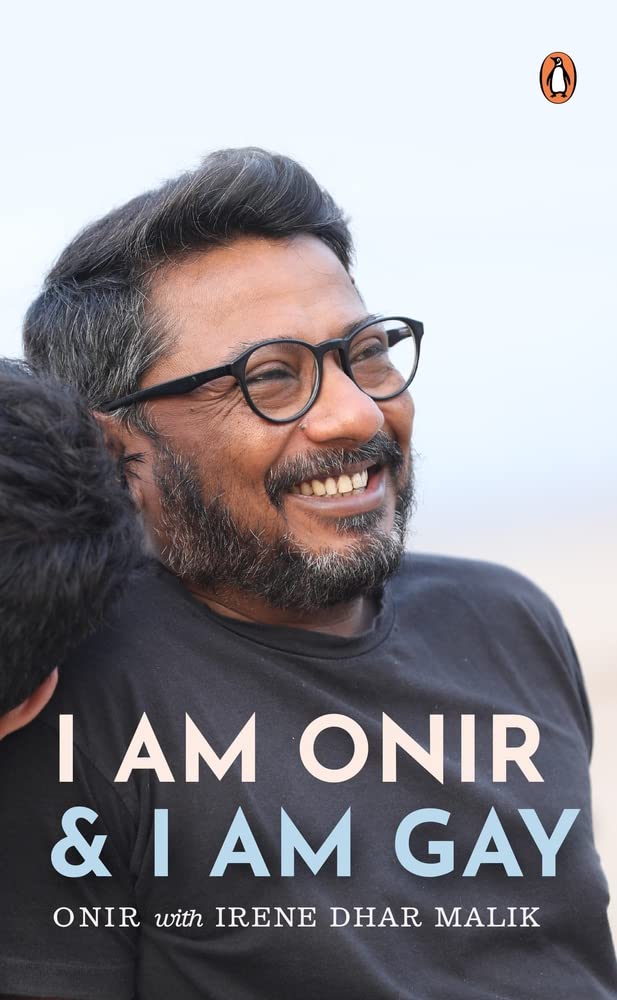
I wish there were people from various industries, such as Dutee Chand in sports, who would come out to empower young people and make the heteronormative world understand and respect us better. However, the story one tells is highly personal; everything else is incidental. I would think of my biography as the biography of a filmmaker who happens to be gay. It is not a textbook on LGBTQIA+ rights.
FII: Finally, let’s talk about your upcoming projects. Since your new film, Pine Cone, will capture the landmark moments in LGBTQ history in India, what is your take on the ongoing Supreme Court’s marriage equality hearing in India?
Onir: It’s a film that celebrates queer desire like no other Indian film has. It is a love story set in the backdrop of a society changing over the last two decades as gay rights in India have changed. It’s a journey of a gay man who has a certain milieu. It starts in 1999 when the first Gay Pride happened in India. Then, it goes to 2009 when the Delhi High Court decriminalised homosexuality. Then, finally, to the year 2019 which is the year after the Supreme Court’s taking down of the 377. The film looks at the narrative from a queer gaze as there is hardly any straight character. It celebrates queer desire without shame.
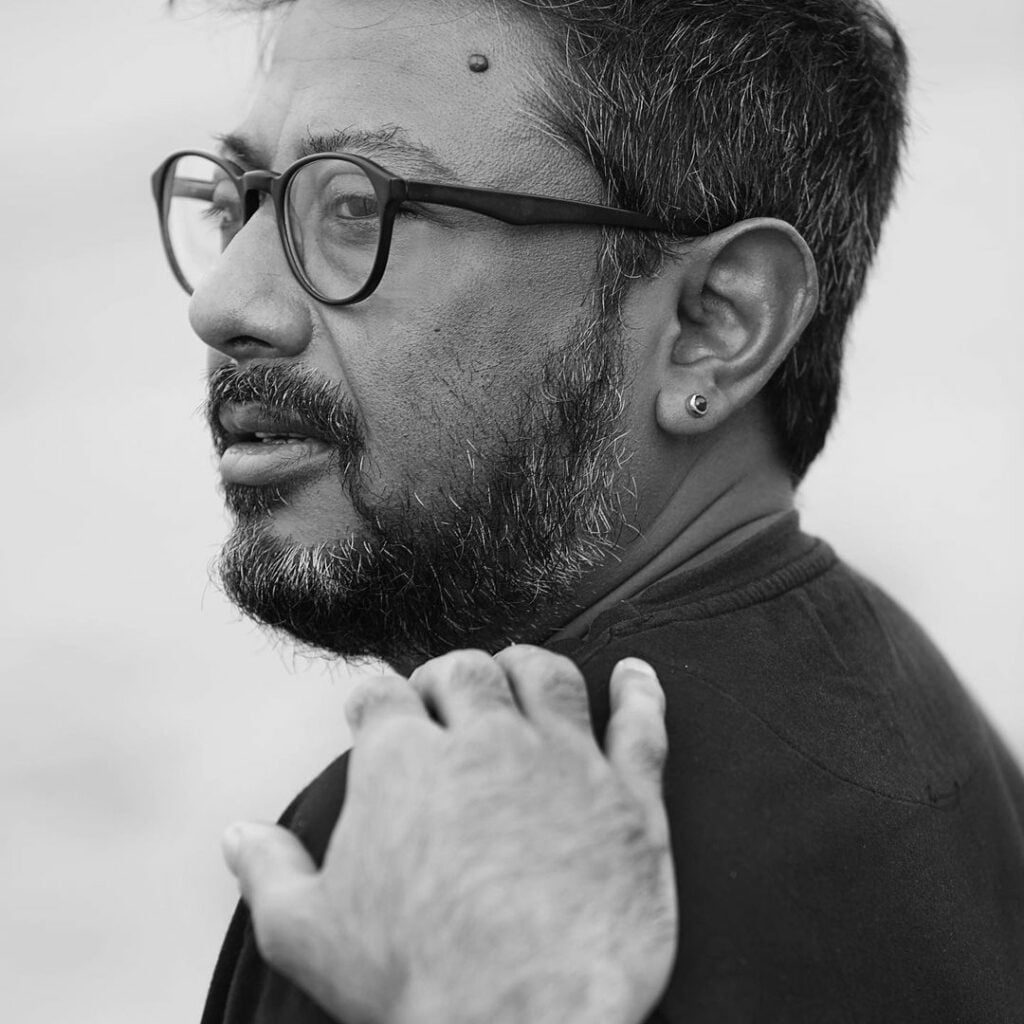
At the same time, I’m very hopeful about Justice Chandrachud and appalled at the level to which those representing the Centre can fall because of their ignorance and hatred. They vilify a community and use terms that are extremely hurting and humiliating. We don’t grudge the heterosexual community of things that make them happy, but they seem to have problems with seeing us as happy human beings.
The interview has been paraphrased and condensed for clarity.
